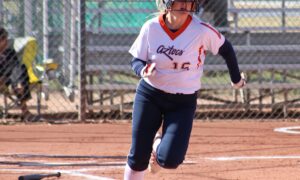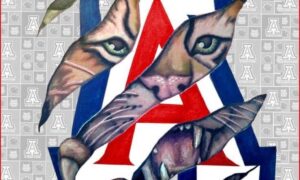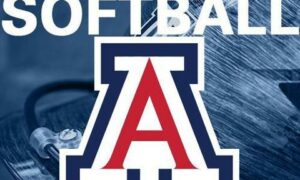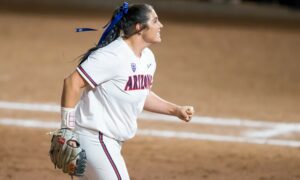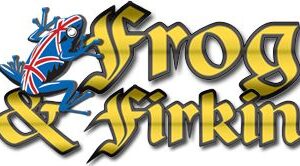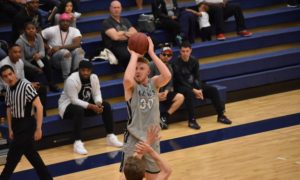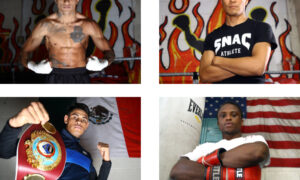Hispanic Heritage Month, running from September 15 to October 15, celebrates individuals within the Hispanic and Latinx community. Within the Sun Devil Athletics program, both athletes and coaches proudly represent their culture and heritage.
We spoke with four individuals – two student-athletes and two staff – who each provided a different perspective on what Hispanic Heritage Month means to them.
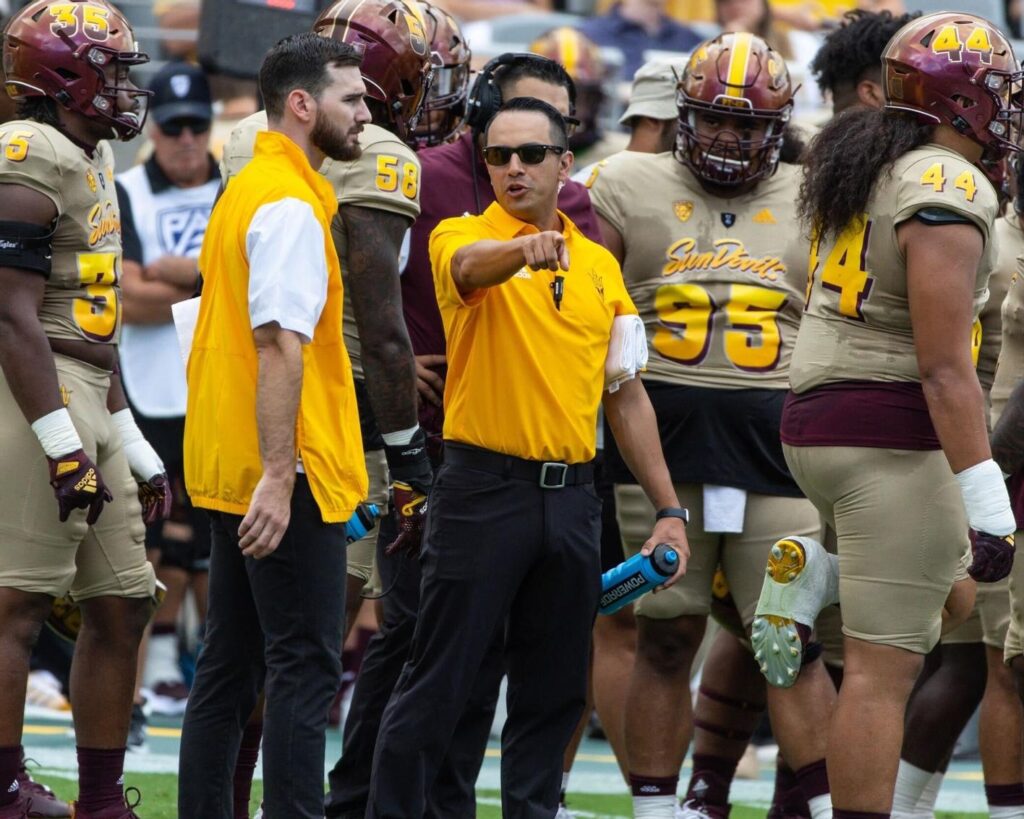
Gerry Garcia
The majority of sports require a team effort. This effort extends far beyond the athletes on the field and includes those of head coaches, assistants, and athletic trainers. All parts of a team infrastructure can help athletes be their best selves, and few go above and beyond more than Genaro “Gerry” Garcia, head football athletic trainer at ASU.
Garcia grew up in a small town an hour south of San Antonio, Texas. His grandparents emigrated from Mexico, and his parents also met in the same small town. The Garcia family moved closer to San Antonio to provide Gerry with more educational and sports opportunities.
Garcia started out working as a water boy for the University of Texas in 2002. In the following years, he worked at several universities and professional football programs, including stints with the Washington football team and New York Giants. He has been at ASU for 12 years, becoming a fixture of the athletic department.
“I personally thought when I came to ASU, I was only going to be here for five years,” Garcia said. “I thought I’d be the assistant for five years and I’d go somewhere else and be a head guy. I wasn’t really planning on staying. But things worked out and I got to be where I wanted to be.”
His presence on the staff has been a boon for the athletes. He wants to be a fatherly figure for those who are away from home for the first time and those in an unfamiliar environment.
“A lot of times [the athletes] are leaving home for the first time, so they don’t have those parental figures there,” Garcia said. “And I spend a lot of time with these guys… I try to let them be who they are, maybe let their guard down a bit, be a person. It’s great to watch them grow as people.”
Athletes being recognized as more than simply cogs in a machine is very important to Garcia as one of the most recognized football personnel.
The idea of being a father figure for the athletes is also part of his appreciation for Hispanic Heritage Month. Since he hailed from a small town and humble beginnings, he was highly motivated to work hard for his family and its heritage.
Garcia values his family above all else, making it an integral part of his culture.
“I felt obligated to do well because I have had opportunities that my parents didn’t have,” Garcia said. “That’s what they were trying to provide, things that they didn’t have access to give us so that we could live a better life.”
Hispanic Heritage Month reminds him of his past and what it took to get him where he is today.
“I certainly do look back and see how far we have all come and the community that I represent.”
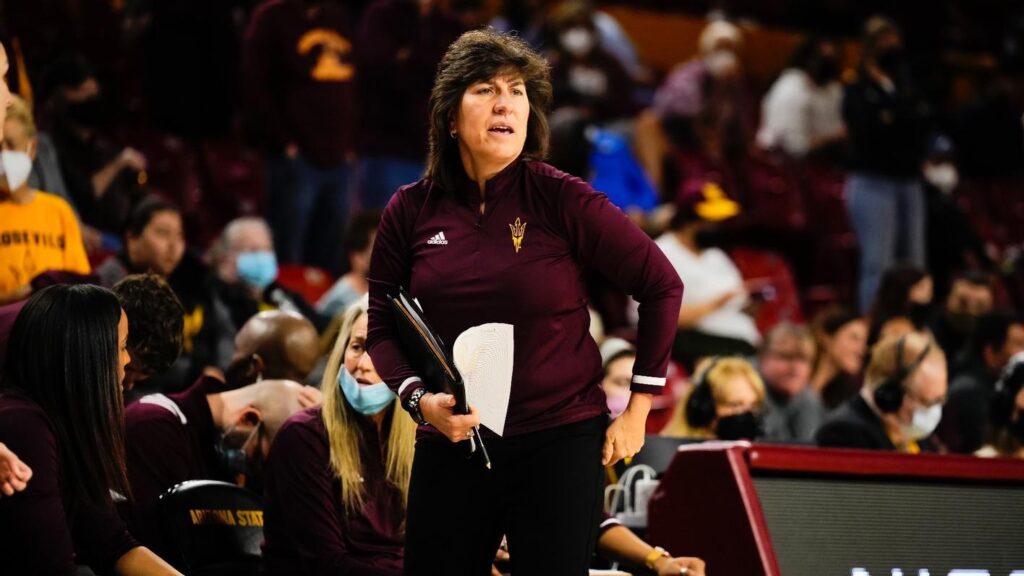
Yvonne Sanchez
Many individuals are involved with sports from a very young age. For many, it sticks with them and remains a significant part of their lives. This is true of Yvonne Sanchez, special assistant to the coach for women’s basketball.
For Sanchez, sports were an outlet and a way for her to escape life’s hardships. She recalls the adversity she and her family faced growing up in a Hispanic community and why she finds great importance in her heritage.
“My parents grew up with little or nothing,” Sanchez said. “You look at anybody of color… and it seems like you almost have to work a little bit harder.”
Sanchez worked hard by playing hard. She grew up in the small community of Los Alamos, New Mexico, where she immersed herself in the sports world. She recalls the origin of her competitive and diligent mindset.
“I always grew up playing. I was probably one of two or three girls that played at that time,” Sanchez said. “Growing up, it was always against the guys, which was fantastic because you didn’t know any better. Not all the guys wanted you to play with them, so you not only had to be good, but you had to be better than most of them.”
Sanchez has carried her love for sports throughout her life, holding different jobs and positions throughout the years.
“I got a high school coaching job at the Academy of Our Lady of Peace, a small all-girls school in San Diego,” Sanchez said. “Then I started my college career at New Mexico State…and went from there to San Diego State. And then New Mexico came calling, and the University of New Mexico coincidentally was being led my old high school coach.”
She continued to move around to other jobs and coaching positions, one of them being at the University of Michigan, until finally, she found herself at ASU.
“ASU was a place that I had a lot of respect for. When Charli (Turner Thorne) called, I said, yeah, I’ll come and help,” Sanchez said. “I have always respected [head coach] Natasha Adair from afar. The coaching job that she and her staff did, I was extremely impressed. It ended up working out [having her come to ASU].”
Sanchez is adamant about the importance of inclusion and diversity on a team, and she has been able to express that as the special assistant to Coach Adair.
“When you’re in athletics, you’re going to coach everybody,” Sanchez said. “It doesn’t matter race, color, religion, whatever. They need to see you because those are your kids and those are your kids for life.”
While there is so much to celebrate every month, Sanchez is happy that the Hispanic community has a chance to celebrate their heritage and spread their stories to make an impact for the sake of inclusion and respect.
“When I go down the street or when I’m in a situation or a store and I see people speaking Spanish or hear it, it’s just great for me because it reminds me of my parents,” Sanchez said. “It reminds me of my childhood. It reminds me of home. And I love it. I really do.”
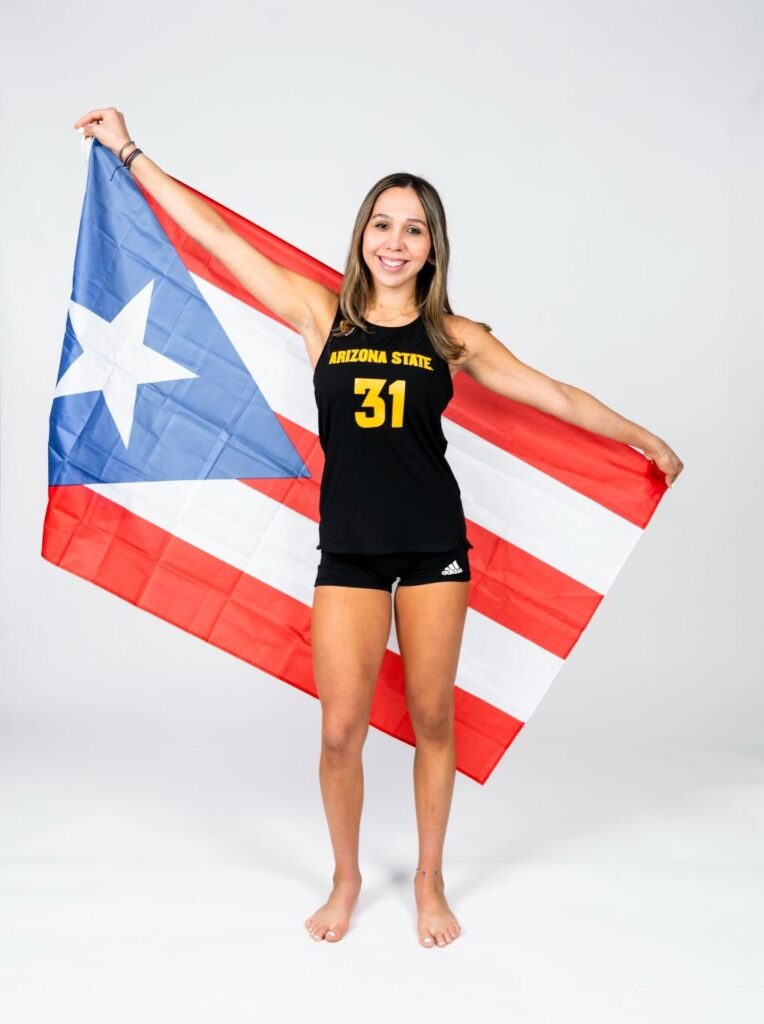
Adriana Nieves Papaleo
Life is all about change and expanding your horizons. Even when moving to a foreign place or trying a new sport, growth follows, and a greater sense of self blossoms. Nieves Papaleo now plays for the beach volleyball team at ASU.
This is reflective of Adriana Nieves Papaleo’s life coming from Puerto Rico to the U.S. While she emphasizes how enriching the experience is, she does not underestimate the difficulty of change.
“I was so scared of coming to the U.S. to study because it’s obviously hard. But you learn so much that it’s an amazing experience,” Nieves Papaleo said. “Last year, I didn’t know anyone. I didn’t meet anyone that even spoke Spanish. So it was crazy. It was a whole different thing for me.”
At age five, Nieves Papaleo began playing indoor volleyball which she fell in love with. Eventually, a friend of hers convinced her to enter a beach volleyball tournament. After having a bad experience, she was convinced to try again, and from then on, she was hooked.
“That tournament went pretty well. And after that, I started liking it and I started to go to practice with them,” Nieves Papaleo said. “I started loving it every time even more. I practiced for a year, and after that, I didn’t want to play indoor anymore. I was in love with beach volleyball.”
When it came time to take her volleyball skills to a higher degree, Nieves Papaleo started searching for possible universities where she could play. She practiced and traveled extensively, and eventually coaches at ASU noticed her and sent over an offer.
Playing in the U.S. at ASU differs a lot from playing in Puerto Rico, Nieves Palaleo recalls.
“It’s like a whole different culture,” Nieves Papaleo said. “I’ve learned and met other cultures here and other people with different social statuses which has helped me expand my vision of life and grow as a person.”
Nieves Papaleo and her family have a rich history in the world of beach volleyball. Her father won a gold and bronze medal in the Beach Volleyball World Championships and her mother played in college. Additionally, her uncle represented Puerto Rico in beach volleyball at the 2004 Olympics.
With her family’s history in the sport and her own international experience, Nieves Papaleo found a great sense of pride in her Hispanic heritage through volleyball. She is glad she is able to attend an institution that promotes diversity and hopes people can acknowledge the importance of Hispanic Heritage Month in many people’s lives.
“I think it’s important to recognize all the life experiences and challenges many Hispanic people have had to face when it comes to coming to the U.S. and living here,” Nieves Papaleo said. “I’m a living example of a Puerto Rican who has made an effort to come here to the U.S. and try and achieve her dreams of playing beach volleyball and gain an education. It fills me with great satisfaction to celebrate this month.”

Roberta Rabelo
Coming to a new country can be daunting, but indoor volleyball player Roberta Rabelo was up to the task.
Rabelo grew up in Brazil, quickly becoming a star and multi-time participant in national tournaments as a middle blocker. Her team placed second in the Brazilian National Cup, where she was named MVP. She is proud of her Latin history, and speaks both Portuguese and English fluently.
She wanted to continue her education and play volleyball at the same time, which is almost impossible to do in Brazil. So, she came to the United States.
“If you don’t want to play volleyball anymore, if you want to pursue your academics, you just go, and you basically don’t have time for volleyball,” Rabelo said. “Here [in the U.S.], I feel like it’s 50/50. So you have time for academics and time for volleyball… you can manage both.”
She received offers from multiple American universities, including ASU, but it was a joint decision between Rabelo and her agent to choose Arizona State.
“I chose ASU because my agent knew my coach who used to coach here,” Rabelo said. “He was like, ‘Oh, ASU is a pretty big university.’ My agent told me, ‘At ASU, you have way more opportunities and support, and academically it’s very nice.’ So that’s why I chose ASU.”
Rabelo has made ASU her home, and she has a strong community around her. Her pride for her Latin history is a major influence, especially during Hispanic Heritage Month.
She thrives on learning different cultures and perspectives. Culture shock for her was very real upon arrival in the United States, as she had to adjust her communication style to effectively convey what she was saying to her peers. Her communication style with her family has also changed, forcing her to balance this style in multiple environments.
“I am a very loud person,” Rabelo said. “I’m a very emotional person because my country is like that… Americans are way more straightforward. If they have to tell you something, they’re going to [tell you] straight, no issues… Sometimes, I talk to [my family] and I’m like, ‘Okay, what do you want to say? Just say it.’ And they’re like, ‘Don’t be rude.’ And I’m like, ‘I’m not being rude, I’m being straightforward.’ I’ve learned how to manage the ways that I speak.”
This balance, while tough to strike, is one that Rabelo handles incredibly well. While the culture shock has worn off, she has become an integral part of the women’s volleyball team, bringing pride in her Brazilian heritage along with her.
Article by Kevin Nix & Patrick Schneider, Cronkite PR Lab




